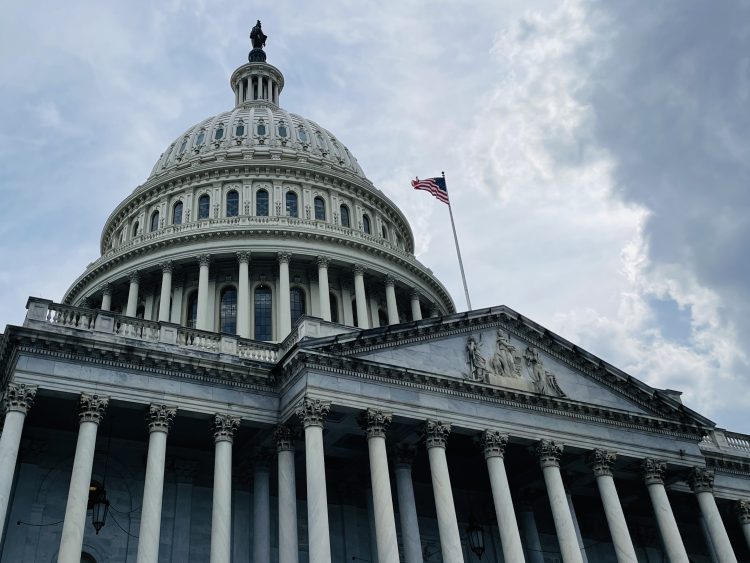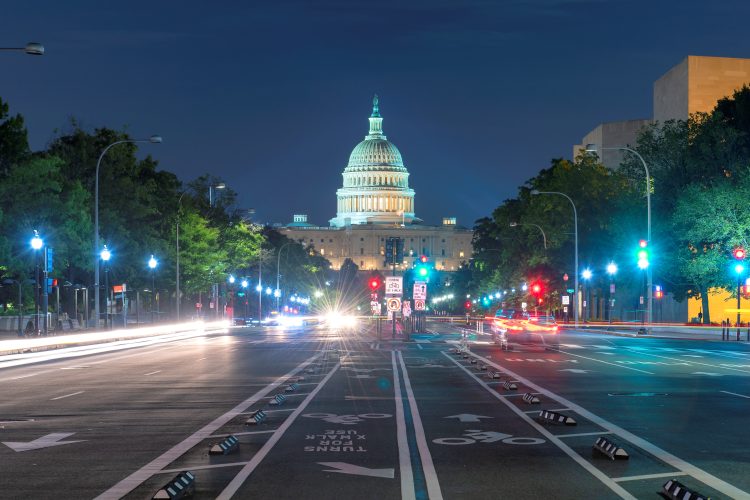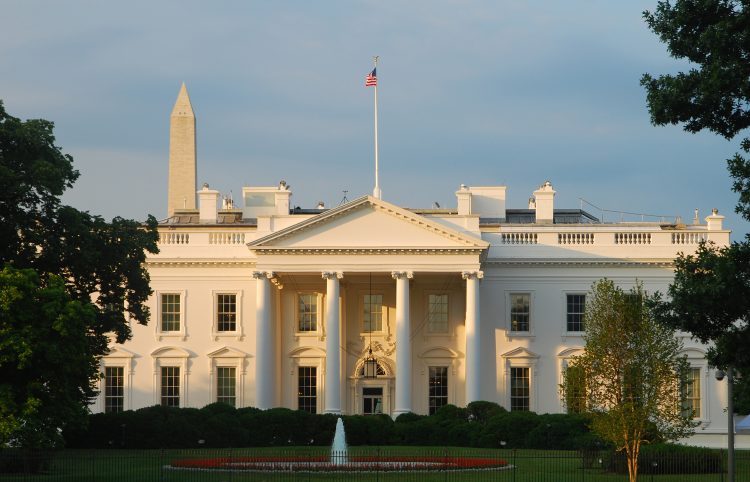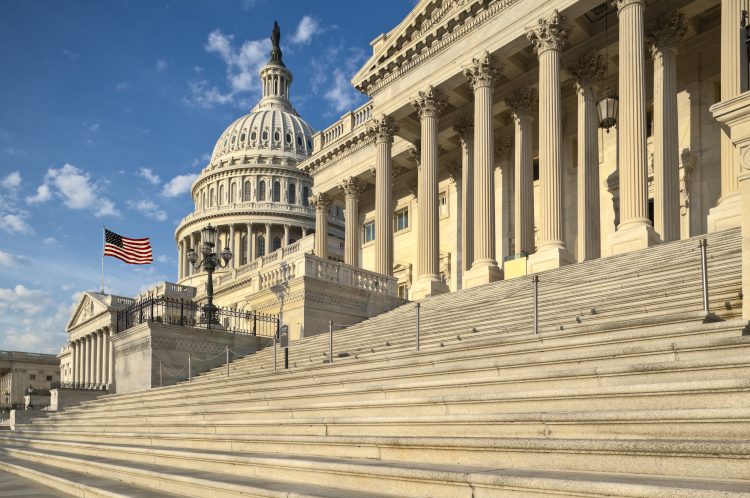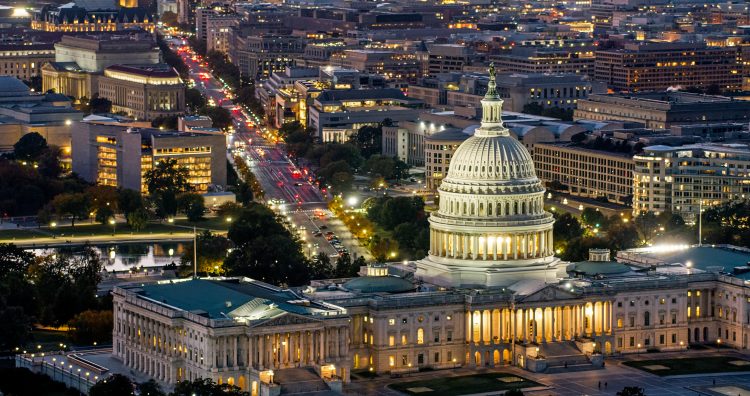This week on Facing the Future, a welcome respite from talk of the debt ceiling crisis to focus on an interesting legislative concept getting considerable bipartisan attention in Congress called Border Carbon Adjustments. These are basically fees that would be assessed on imported goods upon entry to the United States based on how much carbon it takes to produce them. A similar measure is being enacted by the European Union this fall, and both Republicans and Democrats in the House and Senate are eyeing having the U.S. take a similar step. Joining us to help guide the discussion was Greg Bertelsen, CEO of the bipartisan Climate Leadership Council. I was also joined in this segment by Concord Coalition policy director Tori Gorman and communications director Av Harris.
Then later in the program, we got an update on the state of things at the Mexican border after the end of the Title 42 enforcement that kept migrants seeking asylum out of the United States during the COVID public health emergency, which has now ended. That update came from immigration attorney and former U.S. Ambassador to Belize George Bruno.
There may indeed be a bit of a generational political shift going on with conservative Republicans joining forces with Democrats to push legislation designed to incentivize our economy and global manufacturers to run more cleanly with less carbon emissions. Greg Bertelsen of the Climate Leadership Council says border carbon adjustments should actually help the competitiveness of American manufacturers who already produce much less carbon emissions than their counterparts in China and India.
“The advantage of a fee at the border is that we are leveraging the very powerful force that is the U.S. consumer – our consumption culture – and sending a price signal, a market signal to all those manufacturers that export goods to the United States to reduce their emissions,” said Bertelsen. “The other advantage of this type of a policy is that it rewards those actors in the global economy that are operating the cleanest; that are leading in reducing their emissions. And it just so happens that among the most efficient, cleanest companies in the world are those that operate here in the United States. We’ve done analysis which shows that U.S. manufacturers on average are about 44% more carbon efficient than the global average. Meaning, we can make the same goods while emitting about 44% less carbon. So if we get those market incentives right, We’ll reward U.S. manufacturers, boost the U.S. economy, and encourage everyone else in the world to compete to lower their emissions.”
Among the manufactured goods that would be most likely to be subject to this kind of border carbon fee are things like imported steel, aluminum, and industrial chemicals that take a lot of energy and carbon emissions to produce. This type of import fee policy might seem to some like a little bit of trade protectionism. Yet it is getting support from conservative and moderate Republicans, as well as pro-business Democrats and those who have always advocated for strong policies to slow the impact of climate change. Bertelsen says there’s something in this trade policy for those from many different parts of the political spectrum.
“The really intriguing thing about this policy approach is that you can come to it purely with a climate interest, and we’ve seen that and found a really effective policy to reduce global emissions,” said Bertelsen. “On the other end of the spectrum, you could come to this with an interest purely in U.S. economic interest, purely with an interest in our geopolitical standing, and find a policy that’s going to deliver a massive benefit to the U.S. economy because of this carbon advantage, because of our efficiency advantage over the rest of the world. The senators working on this on both sides of the aisle all care about climate, they all care about the economy. On the trade part of this, a traditional tariff is levied on an arbitrary percentage of imported goods. If you export to the U.S., you have no choice but to pay that tariff. What we’re talking about is an environmental performance standard. This is a fee that’s applied based on your environmental performance. So every manufacturer who wants to serve the U.S. market has the opportunity to pay zero dollars simply by reducing their emissions.”
These border carbon adjustments are part of a larger bipartisan climate roadmap Bertelsen and the Climate Leadership Council are advocating. That also includes a domestic carbon tax to de-incentivize high carbon emissions and raise federal revenue.
Later in the program, we got an update on immigration policy from former U.S. Ambassador to Belize George Bruno. Bruno is now an immigration lawyer based in New Hampshire. Bruno described how there has yet to be a massive surge of migrants seeking asylum in the U.S. pouring over the border, despite the fact that the Biden Administration has ended Title 42 enforcement. That provision kept asylum seekers out of the country while their cases were pending, due to a public health rule that allows the federal government to control immigration in order to reduce the risk of the spread of infectious disease during a public health emergency. With the COVID emergency official over, that restriction is gone. Bruno said many were expecting an enormous surge of asylum seekers that has not yet materialized.
“There are still thousands of people coming across the border every day, it’s a reflection of how our immigration system continues to be broken,” said Bruno. “The numbers of people wanting to come in are so large that the system is all jammed up. Many of them who are trying to use the new mobile apps for processing asylum applications report that the system frequently crashes, and they don’t understand the online forms. The asylum system is probably running a backlog of minimum 3-4 years, and before long it will probably be five years before somebody’s petition gets adjudicated. The only way this is going to get solved is that we secure the border, and that includes having more law enforcement and military perhaps along the border. And at the same time, making our rules a little more flexible and allowing people in. The problem with the whole asylum approach is that asylum was never intended for economic migrants. The whole asylum structure is built around the protection of people’s political beliefs and escaping persecution for those beliefs. It doesn’t address the economic problem which is the driver of migrants coming to the U.S. border.”
Hear more on Facing the Future. I host the program each week on WKXL in Concord N.H., and it is also available via podcast. Join our guests as we discuss issues relating to national fiscal policy with budget experts, industry leaders, and elected officials. Past broadcasts are available here. You can subscribe to the podcast on Spotify, Pandora, iTunes, Google Podcasts, Stitcher, or with an RSS feed. Follow Facing the Future on Facebook, and watch videos from past episodes on The Concord Coalition YouTube channel.
Continue Reading
